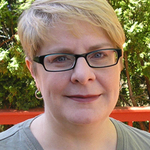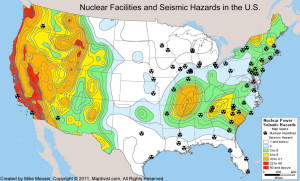
This is my presentation from the workshop I did in Bristol on Teaching 1:1 with tablets.

I found this article rather intriguing, as the student looked at both traditional and alternative methods of learning, and found that in some cases, alternative methods yielded the same or better results than traditional methods. As a former online grad student, I can tell you that it was a little difficult, even as recently as two years ago, to convince people that my MSPTC from a brick-and-mortar school taken entirely online was as stringent and comprehensive as if I went to classes in person. I still see alternative education as a viable method, but as this student points out, since many alternative methods don't issue a “degree”, some sort of standard needs to be agreed upon by those supplying the alternative methods of learning to be able to provide a credential or “legitimize” the coursework taken.
Senior thesis: Evaluating alternative academic credentials
EXTRACT
“Part of why people get an education is to learn,” he said. “But part of it is to improve their lives by earning a meaningful and valuable credential that can hopefully earn them a job.”
In his thesis, “Diplomas of the Future? The Role and Value of Innovative Academic Credentials,” Francis examined two forms of alternative educational credentials: MOOCs and occupational “bootcamps,” which are nine-week-long intensive programs that cost more than $10,000 and help software engineers develop necessary technical and programming skills.
. . . . . . .
“Studies show that people learn similar amounts in an online class as they do in a lecture class, and my research found that people who graduate from developer bootcamps earn as much or more than the typical computer science graduate,” he said. “We know these alternative methods of education work.”
In addition to his research on the effectiveness of the programs, Francis interviewed recruiters and hiring managers from 20 high-tech Internet and software companies and learned what they value in a traditional college degree: selectivity, as someone else had already screened the candidate during the college admissions process; the on-campus experience that teaches interpersonal skills; and the broad intellectual foundation that teaches candidates how to think.
See Also:

We spend more on education than any other advanced state, and we get dismal outcomes for our money. The United States seems to be unable to do what other industrialized nations do routinely — educate our children. Only 40 per cent of graduating seniors can even read competently. We are becoming a nation of morons, and this is particularly true in the Red value states. So this is also having a big effect on the Great Schism Trend!
No Gains for 12th-graders on National Exam
KIMBERLY HEFLING – The Associated Press
WASHINGTON — Handing out dismal grades, the Nation's Report Card says America's high school seniors lack critical math and reading skills for an increasingly competitive global economy.
Only about one-quarter are performing proficiently or better in math and just 4 in 10 in reading. And they're not improving, the report says, reinforcing concerns that large numbers of today's students are unprepared for either college or the workplace.
In an FCC ruling last week, they completely decimated the idea of internet freedom or net neutrality. They basically said that the corporations that can pay more can get faster internet service – this opens the floodgates for corporate rule online.

Here we have a pretty realistic take on the state of the U.S. nuclear industry. We have been so lucky not to have had a crisis like Chernobyl. Click through to see the supporting graphics.
Our Nuclear Infrastructure Is a Radioactive Time Bomb
BRENDAN SCOTT – Vice News
The Nuclear Regulatory Commission has had a busy few weeks. Last month, thanks to Freedom of Information Act queries filed by numerous organizations, the Commission was forced to disclose a dossier of emails showing the lengths it had gone to in the immediate aftermath of the Fukushima disaster to downplay the risk of a similar catastrophe happening in the US. The correspondence showed a startling lack of preparedness.

In one example, NRC public affairs officer David McIntyre offered his opinion on what Energy Secretary Steven Chu should have done when asked by CNN whether American nuclear plants could withstand a force 9.0 earthquake: ‘He should just say, ‘Yes, it can.’ Worry about being wrong when it doesn't. Sorry if I sound cynical.”
The documents also show a background briefing for then NRC chairman Gregory Jaczko and other commissioners that split intelligence into ‘public answer” and “additional technical, non-public information.” In some cases the NRC withheld crucial details and misdirected the media.
Four More Short YouTubes Below the Fold
Continue reading “Kenneth Robinson on Education — Five YouTubes”
Never mind the 4% completion rate, still a useful starting point.
Take college and university courses online completely free
In recent years massive open online courses (MOOCs) have become a trend in online education. The term was coined in 2008 by David Cormier, manager of web communications and innovations at the University of Prince Edward Island. The first MOOC was created the previous year, at Utah State University.
MOOCs are designed like college courses but are available to anyone anywhere in the world, at no cost. You do not receive a college credit, but you will receive a certificate of completion when you complete all coursework. The courses span dozens of subjects and are taught by some of the leaders in those fields. The courses are designed to be interesting, fun and rigorous; the courses are not just in science, and not just in English.
Continue reading “Berto Jongman: Massive Open Online Courses (MOOC) — Useful Failures”